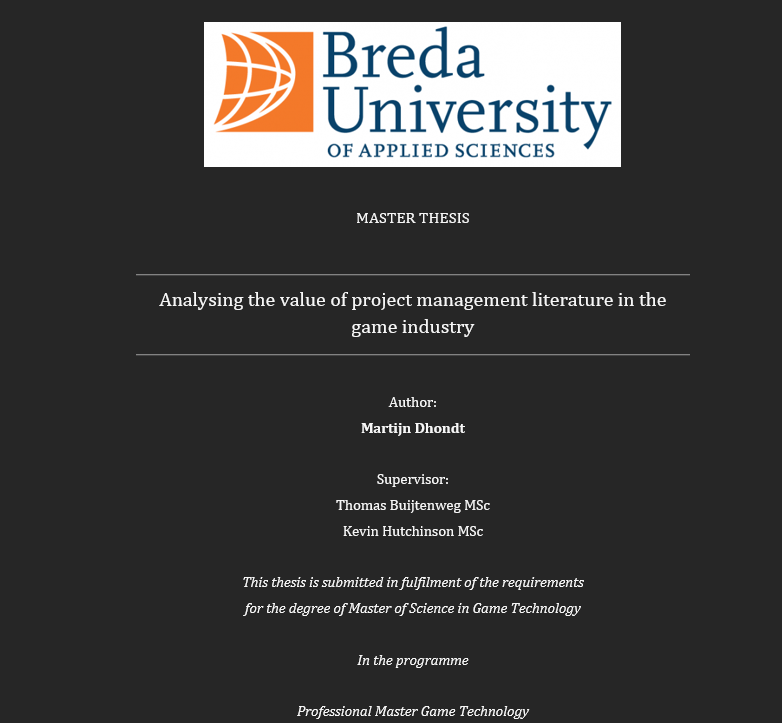If you want to read the entire thesis, follow this link
What is my thesis about?
When talking about project management in the game industry, literature does not seem to be a well-known topic. While there is an abundance of literature that focuses on project management, literature like this that focuses on the game industry is difficult to find. Furthermore, as a starting producer or project manager, it can be challenging to know how to gather knowledge on this matter. This paper aims to shed light on this, to help starting producers and project managers have a better understanding of how to learn project management by focusing on literature, and how much it reflects on important approaches people use in project management in the game industry.
How did I gather data?
To gather data I conducted interviews with project managers and producers in the game industry. During our interviews, I asked questions regarding participants’ accumulation of knowledge regarding project management. Secondly, I let participants come up with their four most important approaches regarding four knowledge areas, which were “Integration Management”, “Time and Scope Management”, “Communications Management”, and “Risk Management”. When a participant came up with 16 approaches, they performed a Q-Sort with them, sorting them on importance regarding a scenario of their choice. At last, we presented a list of approaches by Besner and Hobbs (2006) and asked if any of them were important.
What are the results?
The interview results reveal that the PMBOK© Guide and “A playful production process” lack almost half of the approaches brought up by participants. Additionally, almost half of the approaches from the list of approaches by Besner and Hobbs were mentioned to be important. Considering these results, we conclude that both pieces of literature, while providing some important approaches, lack approaches that were mentioned to be important in the game industry according to our participants. Furthermore, we noticed that most approaches were mentioned only once. Additionally, we noticed that experience seems to be more useful to starting producers and project managers than literature. Literature seems to have more value in enhancing project management skills, rather than building these skills from literature. Lastly, an unexpected outcome of this research suggests that using an exploratory Q-Sort reveals what someone in project management finds important, alongside showing someone’s view on project management. Some participants mentioned that looking at their Q-Sort was insightful and let them rethink what they find important in project management.
